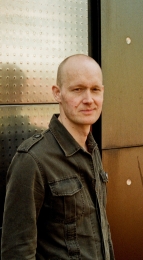Winner of the Schlegel-Tieck Prize for German Translation
'Both a great anti-war novel and a love story, full of tenderness - as around it the world shatters.' - Der Spiegel, 'Novel of the Year'
The year is 1944 and Veit Kolbe, a young German soldier, injured fighting in Russia, is recovering at Mondsee, a village and a lake below Drachenwand mountain, close to Salzburg in Austria. Here he meets Margot and Margarete, two young women who share his hope that sometime, sooner or later, life will begin again.
The war is lost but how long will it take before it finally comes to its end? In Hinterland, Arno Geiger tells of Veit's nightmares and the strangely normal life of the small village, of the Brazilian who dreams of returning to Rio de Janeiro, of the landlady and her rallying calls, of Margarete the teacher with whom Veit falls in love, but who doesn't return his affection.
But when Veit's wounds are healed his next call-up orders arrive. The military outlook for Germany and Austria looks increasingly grim and Veit's luck has run out . . .
Translated from the German by Jamie Bulloch
'Both a great anti-war novel and a love story, full of tenderness - as around it the world shatters.' - Der Spiegel, 'Novel of the Year'
The year is 1944 and Veit Kolbe, a young German soldier, injured fighting in Russia, is recovering at Mondsee, a village and a lake below Drachenwand mountain, close to Salzburg in Austria. Here he meets Margot and Margarete, two young women who share his hope that sometime, sooner or later, life will begin again.
The war is lost but how long will it take before it finally comes to its end? In Hinterland, Arno Geiger tells of Veit's nightmares and the strangely normal life of the small village, of the Brazilian who dreams of returning to Rio de Janeiro, of the landlady and her rallying calls, of Margarete the teacher with whom Veit falls in love, but who doesn't return his affection.
But when Veit's wounds are healed his next call-up orders arrive. The military outlook for Germany and Austria looks increasingly grim and Veit's luck has run out . . .
Translated from the German by Jamie Bulloch









